- Home
- Quizzes
- My Quiz Activity
- Newsletters
- Sports Betting
- MY FAVORITES
- Add Sports/Teams
- SPORTS
-
NFL
- NFL Home
- Arizona Cardinals
- Atlanta Falcons
- Baltimore Ravens
- Buffalo Bills
- Carolina Panthers
- Chicago Bears
- Cincinnati Bengals
- Cleveland Browns
- Dallas Cowboys
- Denver Broncos
- Detroit Lions
- Green Bay Packers
- Houston Texans
- Indianapolis Colts
- Jacksonville Jaguars
- Kansas City Chiefs
- Las Vegas Raiders
- Los Angeles Chargers
- Los Angeles Rams
- Miami Dolphins
- Minnesota Vikings
- New England Patriots
- New Orleans Saints
- New York Jets
- New York Giants
- Philadelphia Eagles
- Pittsburgh Steelers
- San Francisco 49ers
- Seattle Seahawks
- Tampa Bay Buccaneers
- Tennessee Titans
- Washington Commanders
-
MLB
- MLB Home
- Arizona Diamondbacks
- Atlanta Braves
- Baltimore Orioles
- Boston Red Sox
- Chicago White Sox
- Chicago Cubs
- Cincinnati Reds
- Cleveland Guardians
- Colorado Rockies
- Detroit Tigers
- Houston Astros
- Kansas City Royals
- Los Angeles Angels
- Los Angeles Dodgers
- Miami Marlins
- Milwaukee Brewers
- Minnesota Twins
- New York Yankees
- New York Mets
- Oakland Athletics
- Philadelphia Phillies
- Pittsburgh Pirates
- San Diego Padres
- San Francisco Giants
- Seattle Mariners
- St. Louis Cardinals
- Tampa Bay Rays
- Texas Rangers
- Toronto Blue Jays
- Washington Nationals
-
NBA
- NBA Home
- Atlanta Hawks
- Boston Celtics
- Brooklyn Nets
- Charlotte Hornets
- Chicago Bulls
- Cleveland Cavaliers
- Dallas Mavericks
- Denver Nuggets
- Detroit Pistons
- Golden State Warriors
- Houston Rockets
- Indiana Pacers
- Los Angeles Clippers
- Los Angeles Lakers
- Memphis Grizzlies
- Miami Heat
- Milwaukee Bucks
- Minnesota Timberwolves
- New Orleans Pelicans
- New York Knicks
- Oklahoma City Thunder
- Orlando Magic
- Philadelphia 76ers
- Phoenix Suns
- Portland Trail Blazers
- Sacramento Kings
- San Antonio Spurs
- Toronto Raptors
- Utah Jazz
- Washington Wizards
-
NHL
- NHL Home
- Anaheim Ducks
- Arizona Coyotes
- Boston Bruins
- Buffalo Sabres
- Calgary Flames
- Carolina Hurricanes
- Chicago Blackhawks
- Colorado Avalanche
- Columbus Blue Jackets
- Dallas Stars
- Detroit Red Wings
- Edmonton Oilers
- Florida Panthers
- Los Angeles Kings
- Minnesota Wild
- Montreal Canadiens
- Nashville Predators
- New Jersey Devils
- New York Islanders
- New York Rangers
- Ottawa Senators
- Philadelphia Flyers
- Pittsburgh Penguins
- San Jose Sharks
- Seattle Kraken
- St. Louis Blues
- Tampa Bay Lightning
- Toronto Maple Leafs
- Vancouver Canucks
- Vegas Golden Knights
- Washington Capitals
- Winnipeg Jets
- NCAAF
- NCAAM
- Boxing
- Entertainment
- Lifestyle
- Golf
- MMA
- Soccer
- Tennis
- Wrestling
- More Sports
- RESOURCES
- My Account
- YB on Facebook
- YB on Twitter
- YB on Flipboard
- Contact Us
- Privacy Policy
- Terms of Service
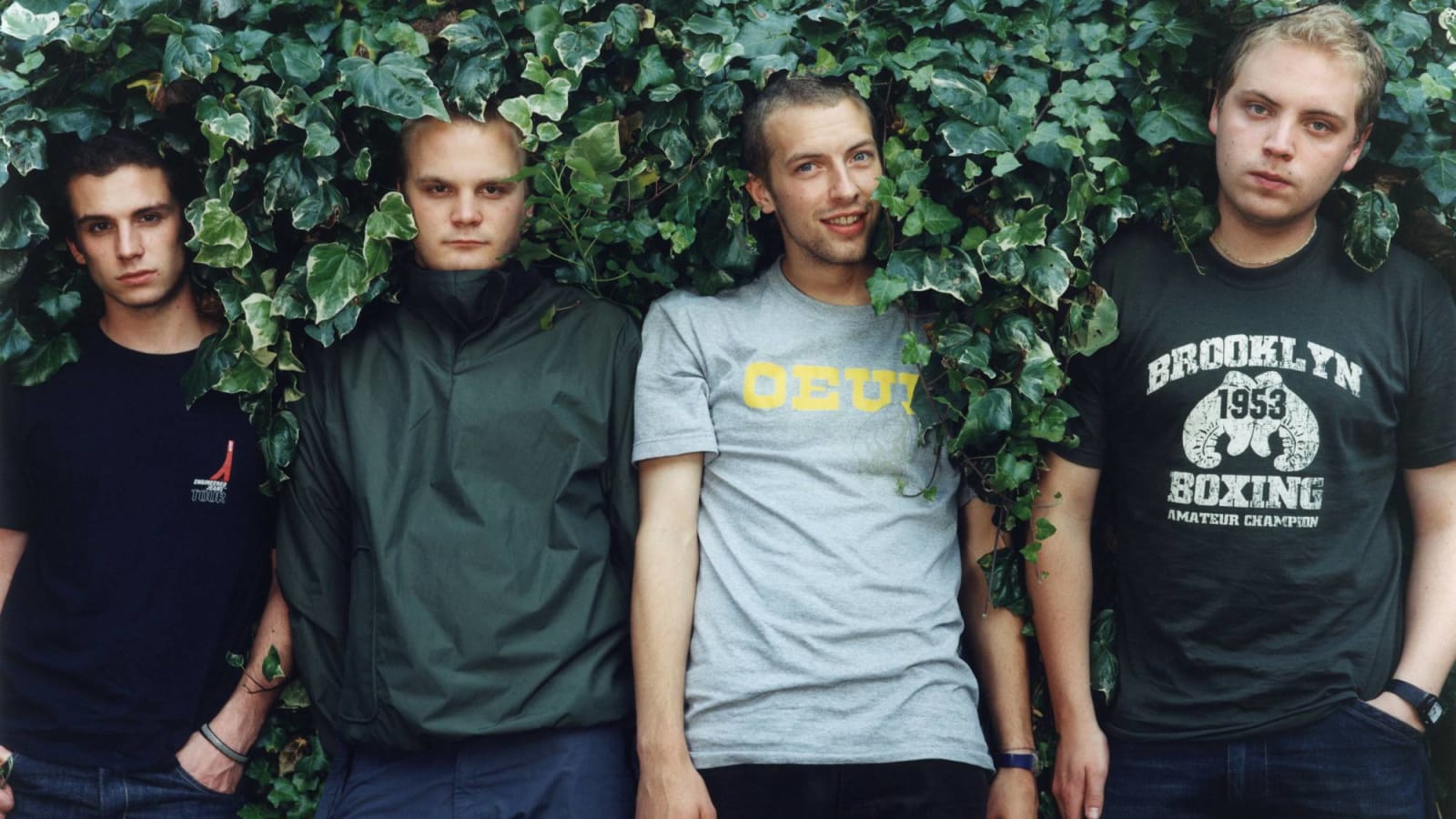
The most memorable debut albums of the 2000s
On July 10 of the year 2000, a rather unassuming record by a largely unknown British band named Coldplay was released, and the album "Parachutes" ended up being a slow-burn wonder, taking all of the best elements of fellow U.K. rock acts like Radiohead and Travis and turning them into songs that felt both refreshingly contemporary and also quite timeless. There's an innocence, a sweetness to Chris Martin's poetry, and as the band slowly turned into a U2 for a new generation, something got lost along the way, as its global reach and chart-topping success started to dilute what was so magical about this group in the first place.
This is a classic case of a band being somewhat defined by its debut album. While we've covered instant debut classics and year-by-year breakdowns before, the truth of the matter is that no two acts are the same. For some, a debut album is a clearinghouse of ideas that would later form a true aesthetic. For others, that stellar debut record would be the launchpad for so many more classic recordings. And yet even a smaller group of artists, that debut album is so thundering, so striking and so definitive, it becomes the goalpost of which every subsequent release is judged against — sometimes unfairly.
So to celebrate two decades since Coldplay's legendary debut, here are the most memorable debut albums of the Aughts (and note: This is memorable, which isn't necessarily best).
"Since I Left You" by The Avalanches (2000)

In many ways, "Since I Left You" was always destined to become your all-time favorite album. After all, this group of Australian DJs assembled it out of a reported nearly 900 samples (the CD jacket is just a wall of credits), mixing it with live instrumentation to the point where you don't know where the band starts and the sample ends. In one hour, The Avalanches take you through literally every genre of music that has ever been conceived, ranging from bossa nova to Daft Punk-styled big beat funk to spaghetti Western orchestrations to '60s boy band saccharine fluff. It sounds like eight different records you grew up listening to playing at the same time, interlocking in a way where by sharing a beat here and horn burst there and a vocal sample from who-knows-what-direction, it ends up creating something brand new. Mashups and megamixes and dense sample-based rap albums existed long before "Since I Left You," but the breathless, joyous and infinitely replayable sounds of The Avalanches' debut is of another beast entirely. They issued a serviceable follow-up in 2016, but nothing can truly beat the magic contained in their out-of-nowhere, utterly captivating first release.
"The Hour of Bewilderbeast" by Badly Drawn Boy (2000)

The thing that's so divine about Damon Gough's opening salvo under his Badly Drawn Boy moniker is how utterly lived-in his sonic universe feels. "The Hour of Bewilderbeast" sounds like it was created in a dingy Lancashire basement, but each song unfolds with its own sepia colors, its own dusty textures and its own distinct voice. Opening with the lovely sawing cello of "The Shining" before lurching into the dimly lit indie rock of "Everybody's Stalking," Gough feels utterly invested in each new musical discovery he makes. Jazz chords and vibraphones on "Once Around the Block"? Why not. Taking U2's grandiosity and shoving it deep underground for the affecting "Cause a Rockslide"? Brilliant move. Taking Santana guitar licks and setting them to a disco beat for "Disillusion"? Sounds like a great idea. Recorded like it was the proud demo of any old bar band, the beauty of "The Hour of Bewilderbeast" is in its nook and crannies: the weird between-song interludes and one-off riffs from instruments we never hear from again. Heaped with praise upon release, Gough has been chasing its shadow ever since. Despite moments of brilliance and an ace soundtrack for the film "About A Boy," "The Hour of Bewilderbeast" will always be his finest hour.
"Who Is Jill Scott? Words and Sounds Vol. 1" by Jill Scott (2000)

Hidden Beach Records was initially founded by a former Motown producer who just so happened to snag an early investment from one Michael Jordan (you may have heard of him). Curating a contemporary jazz and R&B sound, the label's first signee and inaugural release was by a spoken word artist and Questlove discovery named Jill Scott, who was born in Philadelphia and had a worldview that was all her own. "Who Is Jill Scott?" was a debut record that answered its titular question in amazing fashion: downtempo soul singles (the still-killer "A Long Walk") rubbed shoulders with spoken word pieces set to sensual vibes ("Exclusively"), leading to an album that was bursting with astounding musical and lyrical confidence. Scott's voice could go from a falsetto ("He Loves Me (Lyzel in E Flat)") to a guttural roar ("It's Love") at the turn of a dime, and even with a hidden Mos Def remix tacked on at the end, Jill Scott is the star of this show, furthering her vision with heralded follow-up albums and a breakout television career. "Who Is Jill Scott?" Only one of the guiding forces of the 2000s neo-soul movement and an artist who is still making incredible recordings to this day — that's who.
"Is This It" by The Strokes (2001)

Sounding like it was recorded on hand-me-down instruments and borrowed tape decks, The Strokes' blistering and raw debut record mixed grimey guitars with top-tier pop sensibilities, drawing more than a few comparisons to The Velvet Underground from critics. That's all fine and good, but in a pop landscape dominated by Jive Records boybands and teen divas, the hyped press tagline of The Strokes being "the saviors of rock and'n', with garage rock shrapnel flying everywhere while giving us bands like The White Stripes, The Hives and a million other groups whose time in the sun has already come and gone. Yet "Is This It," nearly two decades later, continues to beguile and intrigue with its street rat charm. Julian Casablancas' ever-disconnected vocals gave off an air of unaffected cool, while the album's heart and soul comes down to the interplay between guitarists Nick Valensi and the genius Albert Hammond Jr., who added just the right little riffs and bits of texture to give each song a distinct feel all its own. Some still argue that The Strokes never managed to one-up themselves after this, answering the question of "Is This It?" with a resounding "Yes. Yes It Is."
"Original Pirate Material" by The Streets (2002)

While U.K. radio audiences love some North American rap exports, the gritty two-step and garage scenes that started developing in Britain in the mid-'90s didn't find a U.S. audience right away — at least until a dorky white dude named Mike Skinner put out his debut record as The Streets, "Original Pirate Material." While artists like DJ EZ and The Artful Dodger have been doing great work long before Skinner started getting attention, the truth of the matter is that most American critics hadn't heard anything quite like "Original Pirate Material" before: homemade, filled with attitude and featuring a rhyming style that was basically spoken word, Skinner's "flow" stayed on beat only when he felt like it. Cut-and-paste string samples met simple drum machine loops in a way that was as basic as it was undeniably effective, resulting in a record full of career-defining tracks: the club-honoring "Has It Come to This?," the synth-driven almost-ballad "It's Too Late," the comical character study "The Irony of It All," and the best closer Skinner ever mustered: "Stay Positive." There are artists from the garage scene who are more influential and, quite frankly, better than Skinner, but the mere existence and popularity of "Original Pirate Material" opened the gates wide for a larger audience to see garage and two-step for what it was: Britain's distinct hip-hop voice coming into its own.
"Turn On the Bright Lights" by Interpol (2002)

Some albums break new sonic territory, rewriting the rules of genre in such a way that critics and listeners alike may not know what to do with it at first. On the flip side of that, there are some records that don't do anything new but are just laser-focused on mastering such a specific aesthetic that it manages to nail it. For Manhattan's Interpol, the debut long-player "Turn On the Bright Lights" fell in the latter category, becoming one of the most definitive post-punk albums of its generation; the kind of end-to-end burner that was so revered the band's entire legacy rested on it. Atmospheric, moody, but still catchy and propulsive, Interpol understood atmosphere better than most, mixing bizarre lyrical motifs with winding guitar passages and echoing backbeats. The "Untitled" opener is as close to perfect as far as mood-setting tracks go, the spry simplicity of "Obstacle 1" builds up to a roaring chorus made of thundering drum fills, and the almost-anthemic confessional that is "The New" follows every indie rock cliché you can think of but never once veers into parody. Often imitated but never bettered (even by Interpol themselves), "Bright Lights" ended up being a bright spot in a new decade of indie rock contenders.
"Get Rich or Die Tryin'" by 50 Cent (2003)

Before the release of "Get Rich or Die Tryin'," 50 Cent was the subject of an insane high-profile bidding war, as the Queens-born rapper was making his way through the mixtape circuit less with dexterous wordplay but more a street-smart sense of humor, with his legendary 1999 single "How to Rob" showcasing the way he'd rob various rappers with a winking style. Once Eminem landed Curtis "50 Cent" Jackson on his Shady Records imprint, all bets were off, as 50's major label lead single, "In da Club," produced by the legendary Dr. Dre, stormed the charts and brought fresh new life into the thought-to-be-defunct gangsta rap genre. Jackson's charismatic wagger led to a concise but truly untouchable imperial period, wherein the name "50 Cent" was worth its weight in platinum, his name dominating chart-topping songs for a solid two years. Since then, his constant braggadocio has worn thin, yielding diminishing returns both commercially and critically. He's successfully pivoted to television in the years since, but at the end of the day, he will always be identified as the guy who gave the world "Get Rich or Die Tryin'."
"De-Loused in the Comatorium" by The Mars Volta (2003)

Post-hardcore titans At the Drive-In had a truly rabid fan base entering the new decade, but right as the song "One Armed Scissor" ended up being a rock radio hit, the band splintered in two pieces: the more alternative-leaning Sparta and the wild hard-prog experiment that was The Mars Volta. While Sparta seemed like it would be the easier sell, it was The Mars Volta, founded by guitarist Omar Rodríguez-López and vocalist Cedric Bixler-Zavala, that ended up having the lasting legacy. Uncompromising and deliciously weird, "De-Loused in the Comatorium" was a thundering beacon of guitar wizardry and art-rock oddities, with no less than Rick Rubin helping refine the boys' wild instincts into somewhat more palpable shapes. From the in-the-red opener "Inertiatic ESP" to the Guitar Hero freakout that is "Drunkship of Lanterns" to the multi-part epic that is the psychedelic closer "Take the Veil Cerpin Taxt," "De-Loused" opened rock radio up to prog-rock possibilities it hadn't thought about for some time.
"The College Dropout" by Kanye West (2004)
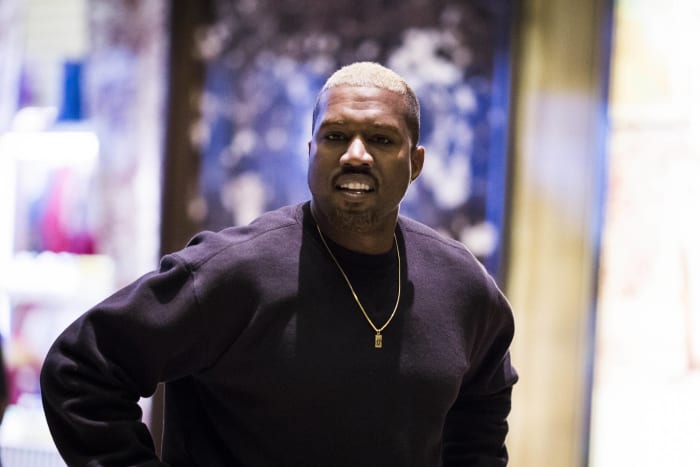
As "The College Dropout" recently turned 15 years old, many who grew up listening to his undeniably game-changing music have to constantly reevaluate what Kanye means to them given his recent forays into political discourse and his penchant for giving the world the worst pull quotes of all time. While it is understandable if his public persona is so egregious that it ruins the experience of his music, the fact is that no matter who he later became, the Kanye of "The College Droupout" was nothing short of a force. Capable of witty-as-hell punchlines and daring, lively productions, "The College Dropout" led with the single "Through the Wire," which had Ye rapping while his jaw was wired shut — a bold stunt that paid off brilliantly. "The New Workout Plan" was goofy, "We Don't Care" set the template for the Chicago rap sound in the years that followed, the skits were actually funny (a rap album rarity), and "Jesus Walks" unveiled the depth of the man's religious convictions. It was a striking, lively and undeniably fresh-sounding record and set up the template of Kanye trying to one-up himself with each subsequent release. They weren't all iconic masterpieces, but honestly, a good portion of his albums were, and if you're going to build a legacy, you can't start it off much better than with "The College Dropout."
"Desperate Youth, Blood Thirsty Babes" by TV on the Radio (2004)
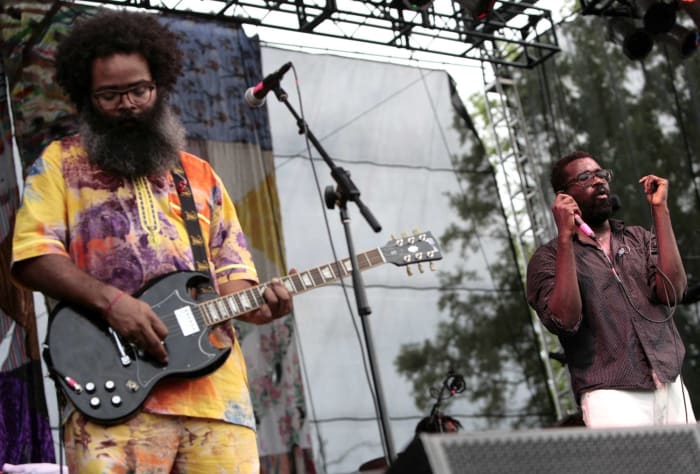
Fresh off one of the buzziest EPs of the new millennium (2003's striking "Young Liars"), the Brooklyn-bred band TV On the Radio's debut full-length arrived on a wave of hype, and while certain snobs say that EP is still their best work, "Desperate Youth, Blood Thirsty Babes" remains a singular experience, mixing synth-heavy indie rock with doo-wop experiments to create a sound that is uniquely their own. With nine tracks totaling 47 minutes, the band certainly takes its time with each song, and TV On the Radio's strength was in the fact that the band had no discernible leader, with vocalists Kyp Malone and Tunde Adebimpe trading lines and harmonizing in a way where their voices blended damn near perfectly (to say nothing of multi-instrumentalist wunderkid Dave Sitek's warm and wild production choices). It's hard to single out highlights in an album full of them, but the completely a capella "Ambulance" remains one of their most gorgeous works, while the sax-and-bass opener "The Wrong Way" throws listeners into a hard rock frenzy while confronting them with pointed and challenging lyrics about race in America. Moody, manic, and beautiful all at the same time, "Desperate Youth, Blood Thirsty Babes" was a remarkable opening salvo in a discography that ended up being full of winners.
"Get Lifted" by John Legend (2004)
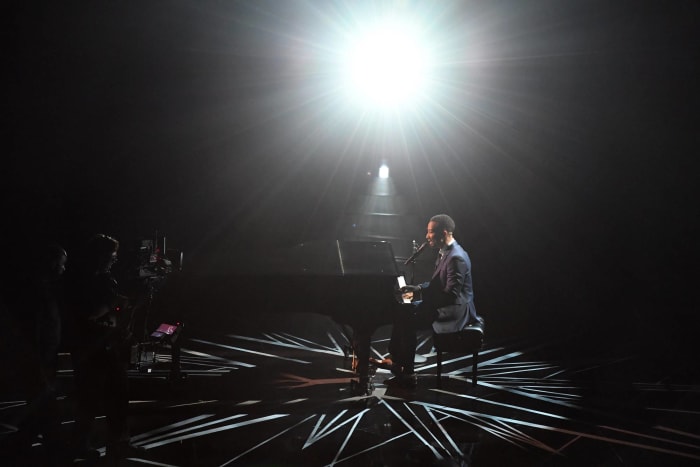
One of the first artists signed to Kanye West's G.O.O.D. Music imprint (along with Common), John Legend was rising in prominence due to his piano proficiency and sultry vocal stylings. While "Get Lifted" wasn't a groundbreaking debut album by any measure, it ended up being the right kind of R&B record to land at the right time. Working in the realms of crossover pop (the smash "Ordinary People"), radio rap ("I Can Change" with Snoop Dogg), contemporary gospel ("I Don't Have to Change"), and loverman soul ("Live It Up"), Legend's charisma carried him over into multiple quadrants, and his charm and talent were evident throughout his supremely confident solo turn. Winning the Best New Artist Grammy shortly after "Get Lifted" came out, Legend soon was a household name, eventually becoming the first black man to complete the rare and elite EGOT (winning an Emmy, Grammy, Oscar, and Tony). He was also the winning coach on a season of "The Voice," but that's not really an EGOT thing.
"Funeral" by Arcade Fire (2004)

Riding off the buzz of life-changing live shows and a litany of critical hosannas, the Canadian indie rock group Arcade Fire seemingly emerged out of nowhere when its legendary debut record "Funeral" dropped. Filled with fiery orchestration, thumping rock tempos and a heightened sense of drama, "Funeral" hit with a wallop, with every song feeling utterly lived-in and melodically sound. Opening with the interconnected "Neighborhood" suite and then moving on to the acoustic disco rave-up of "Crown of Love" and the anthem-to-end-all-anthems "Wake Up," Arcade Fire ended up delivering a monumentally cathartic long-player with "Funeral," inviting you to scream along at one moment before shifting to more intimate musings with tracks like "Haïti" and the lovely closer "In the Backseat." While the band's output since "Funeral" has been notably divisive, it carved out a prominent niche in the mainstream for hard-charging art-rock.
"Arular" by M.I.A. (2005)

Once the critically heralded mixtape "Piracy Funds Terrorism Volume 1" started making rounds on the internet, M.I.A. and Diplo quickly became must-known names in the circles of music critic literati, and by the time M.I.A.'s expansive studio debut "Arular" hit, her unique brand of worldbeat- and electro-based hip-hop sounded like the future of music. Simultaneously danceable and fiery with its political themes, it felt as if M.I.A. was using undeniable club bangers as a vehicle for introducing the world to some difficult subject matter, ranging from drug running to terrorist attacks to the struggle for independence in Sri Lanka. You might be too busy on the dance floor to pay attention to the words, but tracks like "Sunshowers" and "Amazon" carry serious weight behind theeir bodacious beats. Make no mistake: M.I.A. still found time to have fun (like on the utterly goofy "U.R.A.Q.T."), but "Arular" was its own fiery sonic universe where the discoball was on fire but you couldn't resist the urge to shake your butt.
"Oracular Spectacular" by MGMT (2008)

Basically the perfect convergence of modern indie-rock textures with good ol' fashioned synthpop earworms, the Connecticut-based tie-dye boys of MGMT arrived near the end of the decade with an opening salvo called "Oracular Spectacular," which was as smarmy, catchy and undeniable you'd want a decade-defining indie-pop album to sound like. With the help of The Flaming Lips' production mastermind Dave Fridmann, the duo's psychedelic fixation with pop melodies and drugged-out transitions led to a record that blew up beyond even the creator's wildest dreams, with singles like "Time to Pretend," "Kids" and the too-funky-for-words "Electric Feel" becoming college rock staples damn near instantaneously. While it's unquestionably their most popular record, effectively putting a huge crack in the glass barrier between indie rock music and mainstream acceptance, MGMT had so much success so quickly they weren't sure how to handle it, which is why every other album they've put out has seemed to be a counteraction to their candy-colored pop favorites in some way or another. They've put out some great songs since "Oracular Spectacular," but they've never put out an album as acclaimed or as beloved as "Oracular Spectacular."
"For Emma, Forever Ago" by Bon Iver (2008)

Initially released in 2007 before getting a label-assisted rerelease in 2008, Justin Vernon's debut album as Bon Iver emerged baked in mythos: Going through a bad breakup, the Wisconsin native went up to a cabin in his home state for a few months to quietly write and record all his thoughts and feelings in song form. Adding in some other instruments in post, the resulting record under his new moniker, "For Emma, Forever Ago," landed with immediate force. His clean acoustic songs and angelic vocals made for a powerful listening experience, with tracks like the lightly propulsive "Lump Sum" and the gorgeous heartache elegy "The Wolves (Act I and II)" painting his world in cold winter grays, but deep in his loss, we could hear a warm, beating heart. When his voice cracks during the stunning single "Skinny Love," it's clear that Vernon isn't faking his emotions. Moody and ambitious at the same time, "For Emma, Forever Ago" is as gorgeous a breakup record as they come, and as time went on, Vernon got further from the sound that helped introduce him to the world, diving deeper and deeper into more abstract song structures. No matter how strange his sonic would later become, "For Emma, Forever Ago" is a rare beauty that feels frozen in time.
"The ArchAndroid" by Janelle Monáe (2010)

Signed to Sean "Diddy" Combs' Bad Boy Records, the ridiculously talented Kansas City native Janelle Monáe seemed so utterly out of place with where music was at in 2010: Focking a gender-bending style, this young singer was captivated with sci-fi concepts and high-end performance art, mixing neo soul tropes with rock guitars, psychedelic flourishes and the perfect smattering of pure pop and hip-hop influences. "The ArchAndroid" is an endlessly impressive record, swinging from genre to genre with astounding ease, as Monáe and her tight pocket of collaborators work together seamlessly. Giving you good ol' guitar funk one moment ("Locked Inside") and trippy string quartets the next ("Mushrooms & Roses"), Monáe adapts her voice and persona to fit any mood and moment, shifting from cute pop mannerisms to cinematic diva belting at the drop of a cufflink. We still feel weird about that Of Montreal track which transported into the record's back half with no real rhyme or reason, but "The ArchAndroid" remains a full realized, endlessly creative record that invites you into its world and refuses to let you leave. It should be illegal to be this talented.
"Channel Orange" by Frank Ocean (2012)

When Frank Ocean's "Nostalgia, Ultra" mixtape dropped in 2011, it became an item of intense hype, as Ocean's fractured vision of alternative R&B was remarkably considered and beautifully rendered. However, few could've prepared for what "Channel Orange" would soon herald: an uncompromising artistic vision that was a non-linear as it was digestible, relying on unconventional song structures to deliver a sound that ended up selling in droves. Exploring the concepts of queer love, class warfare and endless amounts of heartbreak over hazy beatscapes, Ocean's swinging, sultry and occasionally humorous map of his heart was built on classic R&B tropes that were altered in such a way it felt like the future of soul music. From the string-laden lament "Thinkin Bout You" to the playful mockery of the wealthy privileged in "Super Rich Kids" to the almost-banger that is the multi-tiered "Pyramids," Ocean's musical reach ends up meeting his grasp time and time again, no doubt aided by some assistance from friends like Pharrell, André 3000, and Tyler, The Creator. Although much was made in the prerelease hype about how the subject of many of his songs appeared to have a male pronoun, Ocean's bid toward making an unashamedly queer album such as "Channel Orange" and watching it receive popular acceptance was something quite revolutionary for its time, breaking down the doors for a whole new generation of norm-breaking performers.
"Run the Jewels" by Run The Jewels (2013)

While former Company Flow member and Definitive Jux label head El-P has a great ear for an apocalyptic beat, it was his work with the OutKast-connected rising star Killer Mike that helped push both rappers into more daring artistic territory. While Mike's 2012 solo effort "R.A.P. Music" ended up being one of the most acclaimed records of that year — what with Mike's blunt-force-impact flow finally meeting up with El-P beats that could sustain such ferocity -- it was their first outing as a duo that made the world realize just how perfect the two are for each other. Mike came alive as a storyteller when trying to outrap his friend when performing as Run The Jewels, and El-P's knack for a comedic punchline helped round out their lyrical barbs so it remained digestible even when staring down difficult subject matter. Oh, and the record flat-out slaps. Where do you start with highlights? There's the thundering "Banana Clipper" (featuring OutKast's Big Boi, natch), the budget "Blade Runner" beats of "Get It," and the defiant denouncement of selling out that is the epic closer "A Christmas F---ing Miracle" — and that's just scratching the surface. Lyrically dense and instantly memorable, Run the Jewels robbed us blind with its sheer tenaciousness, and by the time "RTJ4" came out in the summer of 2020, it was clear that we needed to stop talking about them as a fun side-project and start talking about them as one of the greatest hip-hop duos in history.
"Settle" by Disclosure (2013)

The Lawrence brothers (Guy and Howard) didn't necessarily plan to reinvent the course of dance music, and if we're being completely honest here: They didn't. Instead, the boys of Disclosure took a different approach: studying the sound of classic Chicago house and Detroit techno and fully repackaging and interpreting them for a new generation. The stark minimalism of their beats — to say nothing of the on-the-floor immediacy of their pop instincts — brought classic dance tropes to a modern radio audience that was already getting bored with the over-fussy sounds of EDM popularized by artists like Pitbull. Due to the oversaturation of that annoying "bro-step" sound, Disclosure's singles cut like a knife through the noise, as ace singles like the Sam Smith introduction "Latch" and the full-throwback house number "When A Fire Starts to Burn" sounded like nothing else on the air. Yet it was the duo's collaborations with acts AlunaGeorge ("White Noise") and London Grammar (the gorgeous comedown that is "Help Me Lose My Mind") that truly endeared them to dance music fans both hardcore and casual. "Settle" set off a litany of imitators, but no one could match the Lawrence's deep knowledge of dance music's history, which, incidentally, made them flagged as what the future of electro should sound like. Full disclosure: This is a great album.
"Dark Energy" by Jlin (2015)

Much like Bon Iver's Justin Vernon before her, Jerrilynn Patton benefited from her debut album being embellished with a dynamite back story, with the Gary, Indiana, native working at a steel mill during the day and spending her nights on her computer, working on beats and sounds inspired by Chicago footwork and IDM, taking the former subgenre's danceable rhythms and the latter's intellectual introspection to create the aptly named "Dark Energy" under her Jlin moniker. Mixing skittering drum machines with horror movie dialogue samples and an absolutely overbearing sense of dread, Jlin's debut effort on the legendarily eclectic Planet Mu label sounded as alien as a spaceship and as intimate as a confessional. Truly disorienting for new listeners unfamiliar with IDM (but if you want to try, its easiest entry point might be the excellent "Black Diamond", which uses every possible percussion sound it can think of in a compact two minutes), "Dark Energy" radiates at a frequency all its own and proved that no matter how dark or weird you think your creations may be, there is always an audience for them.
"Midwest Farmer's Daughter" by Margo Price (2016)

For the Illinois-born Margo Price, music has always been in her life, especially when you consider her great-uncle is Bobby Fischer, the country songwriter who penned tunes for the likes of George Jones, Reba McEntire, and Conway Twitty. Family relations aside, the supremely talented Price has a deep love for classic country divas like Tammy Wynette and Loretta Lynn, and that love was evident when her debut record, "Midwest Farmer's Daughter," came out on Jack White's Third Man Records in 2016. "Midwest Farmer's Daughter" feels like it could've been recorded and released in the mid-'70s without anyone noticing, with Price's astute vocals and her ace backing band's note-perfect performances showing a true love for the genre. Modern "Nash Vegas" country radio sounds completely alien compared to Price's fully-formed debut, because Price understands that "country" isn't so much a sound as it is an attitude. She reveals her inner life with her remarkably lived-in lyrics, but by the time she gets to the throwback keyboard pop of "Four Years of Chances," it's clear that she's in full control of her songwriting powers. Capable of barn-burners and big saccharine weepers all the same, "Midwest Farmer's Daughter" is impossibly good. It's one thing to pay homage to the country records you grew up listening to, but it's another thing altogether to make something that's arguably even better than what your idols made before you.
"Ctrl" by SZA (2017)
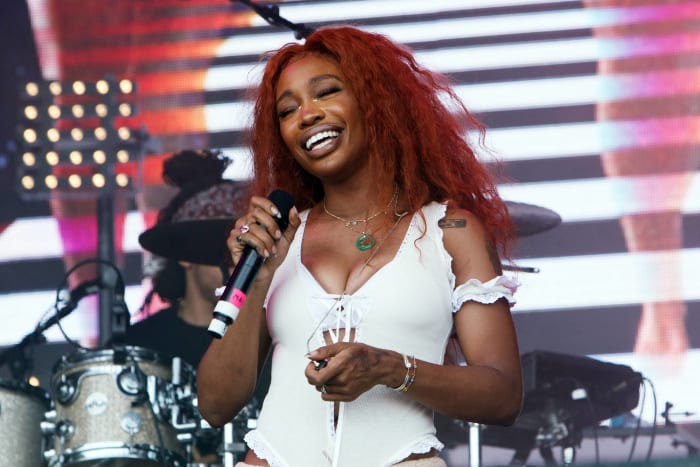
Before making radio hits with Maroon 5 and netting an Academy Award nomination for her work on the "Black Panther" soundtrack, SZA (Solána Rowe) was simply known as the first R&B artist signed to Kendrick Lamar's home label of Top Dawg Entertainment. By being a part of TDE, she had access to many of that label's resources and producers, which is in part why the sound of "Ctrl," her debut effort, sounds so confident and fully formed. Dubbed "alt-R&B" by the press, her signature sound of dry drum beats and woozy synths serves as the perfect backing for her unbelievably candid lyrics. "I wanna shave my legs for you," she sings in the glorious "Pretty Little Birds" before pivoting to the post-breakup regret sex she has in the utterly hypnotic Travis Scott feature "Love Galore." "Gimme a paper towel, gimme another Valium / Gimme another hour or two, hour with you," she sings, and with each line she sells the conviction. She's not just a new voice in neo-soul, but she also feels every emotion in every line, and that power is a rare, beautiful force to witness. "Ctrl" let the world know what the future of R&B would sound like; in the years since its release, it feels like many artists are still playing catch-up.
"Invasion of Privacy" by Cardi B (2018)

When "Bodak Yellow" hit the top of the charts, with stripper-turned-MC Cardi B becoming the first female MC to have a multi-platinum solo single, it was clear that as entertaining as she was, Cardi B would not go down as the greatest lyricist of all time. What she had, however, was undeniable swagger and confidence, weaponized in such a way that her presence alone made for riveting entertainment. Her features were always fresh and charming, but for her solo studio debut "Invasion of Privacy," Cardi went in just about any damn direction she pleased. A "Tom & Jerry" referencing throwback of a Chance the Rapper feature? Sure! A massive Latin crossover hit that sampled the original boogaloo sensation "I Like It Like That"? Why not! A closely-guarded shuffle about warning your lover to not cheat around on you ("Be Careful")? He'll love it! For "Invasion of Privacy" and its surprisingly reserved runtime of 48 minutes, Cardi gives us a tour of her artistry, and it's surprising how many layers there are. While Nicki Minaj may have been one of the longest-reigning female rappers for some time, Cardi's presence was boundary-breaking for mainstream audiences, and in the years that followed her debut, everyone from Megan Thee Stallion to Doja Cat (and, yes, even Nicki) ended up scoring chart-toppers no doubt thanks to the breakthrough success of "Invasion of Privacy." The only thing more exciting than her debut record is wondering what she's going to do next.
"Isolation" by Kali Uchis (2018)

Although she may not be the most well-known name in the debut album pantheon, the first go-round for Colombian-American soul singer Kali Uchis will eventually go down as one finest, most musically satisfying records of the past decade. Raising to prominence off some strong features for both Tyler, The Creator and Gorillaz, Uchis' debut finds many of her musical friends returning favors, mixing their styles together to create a mesmerizing swirl of bossa nova attitude with pop and urbano styles. The result? A sound that is familiar at first listen but also completely unique to Uchis herself. Frequently switching languages mid-song and unafraid to deliver violent lyrics in the form of a sensual coo, Uchis often feels too composed to unleash lyrics this weird, but therein lies the mystery at the center of "Isolation": The more you listen, the better it gets. Whether she's not trusting anyone on the casual keyboard samba of "Teeth in My Neck" or going full Gorillaz synth-pop weird with the Damon Albarn-assisted "In My Dreams," it's clear that as effortless as she makes it sound, Uchis really can switch from style to style with the single bat of an eyelash. Sultry, surprising and occasionally downright funny, "Isolation" is a true gem of a record whose cult audience is growing every single day.
"When We All Fall Asleep, Where Do We Go?" by Billie Eilish (2019)

Looking at Billie Eilish's truly jaw-dropping success on paper alone, you'd think that she's the biggest pop star in the world, as she's sold millions of records, won the Grammy for Album of the Year and even recorded the theme song for a Bond movie. Yet when you look even further into her story (her voice only occasionally rising above a whisper, her whole album was produced by her brother in his home studio, the album dealing with dark and brooding themes over sometimes-experimental beatscapes) it's surprising such an utterly unique voice broke through at all. Yet Eilish's distinct brand of challenging darkpop connected with the world in a big way, and songs like the chart-topping "bad guy" and the thundering "you should see me in a crown" showed just how weird and wild her aesthetic could be. Wrapping her unique voice within tight and memorable melodies, "When We All Fall Asleep, Where Do We Go?" is a success story unlike any other, and now that her own brand of bizarre has found a wide audience, we're excited to see what utterly indescribable musical creatures will follow in her trailblazing path.
Evan Sawdey is the Interviews Editor at PopMatters and is the host of The Chartographers, a music-ranking podcast for pop music nerds. He lives in Chicago with his wonderful husband and can be found on Twitter at @SawdEye.
More must-reads:
Trending in Entertainment
Customize Your Newsletter
 +
+
Get the latest news and rumors, customized to your favorite sports and teams. Emailed daily. Always free!
Use of this website (including any and all parts and
components) constitutes your acceptance of these
Terms of Service and Privacy Policy.

